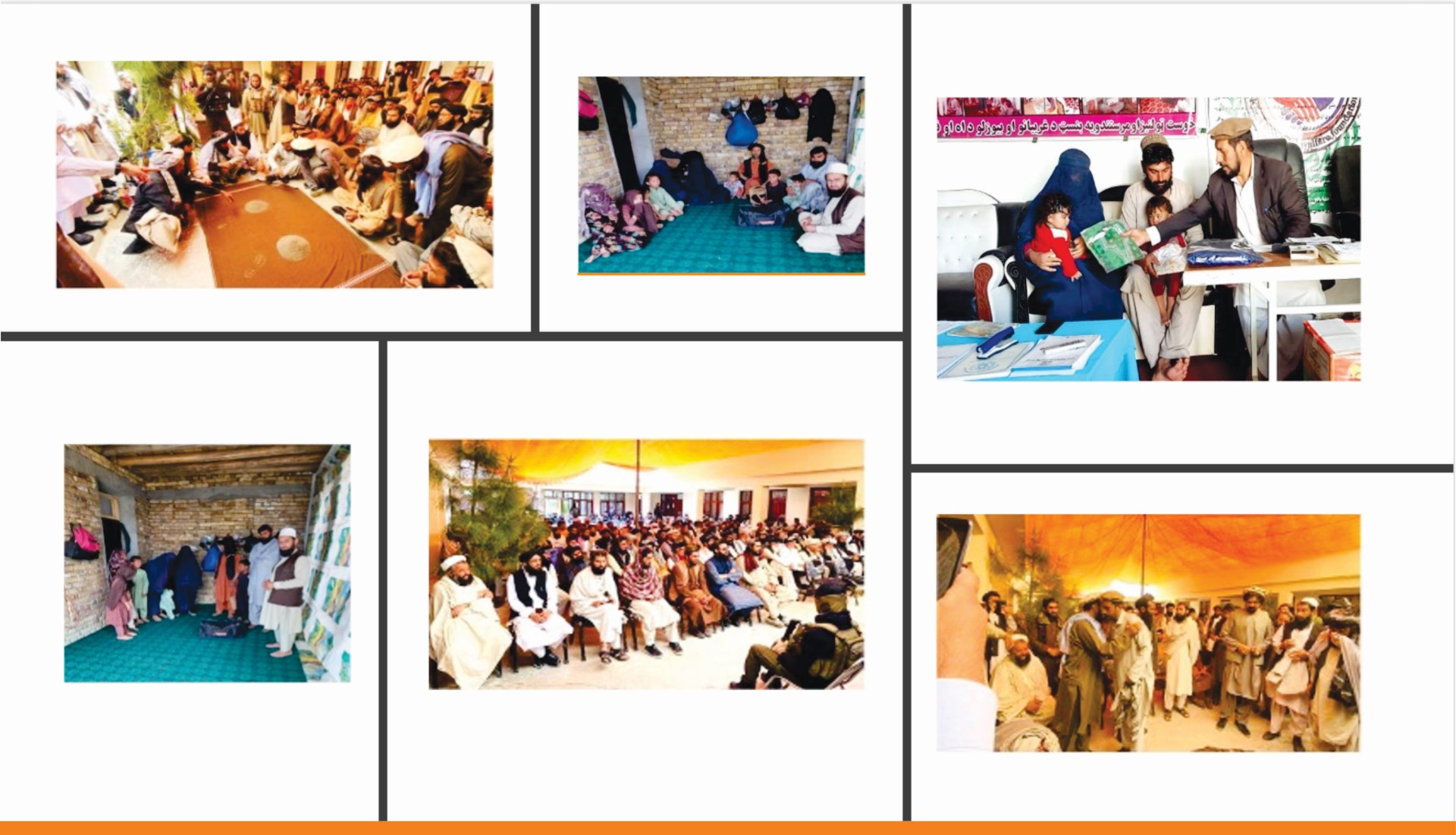When I learned about community training programs, I was eager to register. These programs aimed to teach me how to take on social responsibility within the community, resolve conflicts, mediate disputes, protect the rights of victims and survivors, and understand the various forms of violence against women and girls.
Gul Wafa Akhtar, a 40-year-old member of the HRWMO self-help group, has participated in several training workshops organized in Khost province and leads a charity foundation there. He has assisted thousands of impoverished individuals in various areas. Recently, he organized a workshop through HRWMO, resulting in food items being distributed to 100 needy families in the Koti Khilo village of the Du Manda Oshamal District in Khost.
During this event, I encountered a painful story. A woman approached me with tears in her eyes, and at first, I assumed she was suffering from poverty. She spoke in Pashto and shared a harrowing tale. Three years ago, while I was selling dry food in the central square of Takhar province, three people got out of a car and sprayed drugs on me. The next day, I discovered I had been kidnapped. The kidnappers threatened to kill me if I said anything or made noise. Out of fear of death, I remained silent. They married me off to a man in Khost province, claiming I was their sister, for a sum of 300,000 Afghans. Now, I have two daughters, but I deeply miss my parents and suffer from mental health issues due to the separation, which led me to attempt suicide.
Vafa wanted to help her find her family, utilizing the connections he built through self-help groups and the knowledge he gained from several training programs focused on resolving disputes. He made various contacts in Takhar province, and eventually, we located her father and invited him to Khost. He was happily reunited with his daughter, ending three years of separation.
Naveeda’s father expressed his heartfelt gratitude: “I didn’t know whether my daughter was alive or dead for three years. We were incredibly unfortunate. Her mother always shed tears for her. May Allah reward you. We thank you for your Islamic and human sympathy.”
Now, thankfully, both families have happy lives, and a friendship has developed between them.
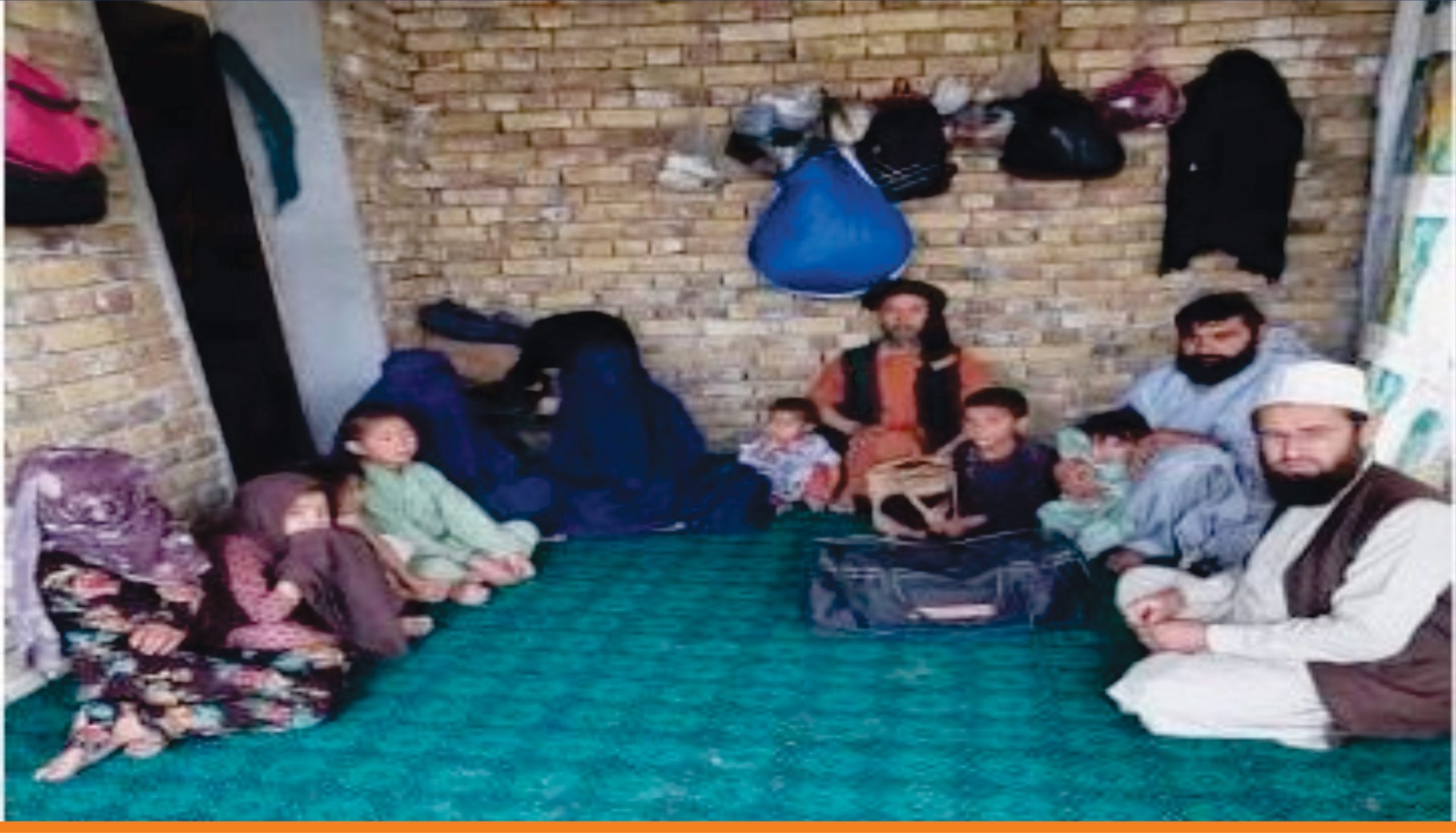
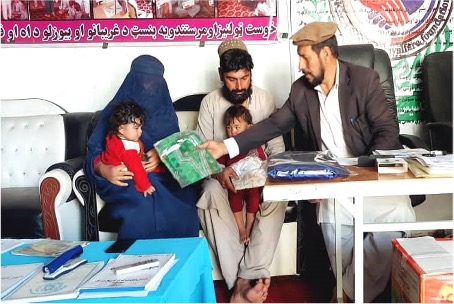
Mr. Usman Haider, a 30-year-old engineer and community activist, participated in several workshops with the HRWMO focused on conflict resolution, mediation, and addressing gender-based violence. He actively supported victims and survivors in his community through local initiatives. Mr. Haider shared a story about two families, the Wakil Shah Khan family and the Farid family, who had been feuding for three years in the Dargi area of the Tani district. During this feud, one person from each family was killed, and another was injured.
Usman says, “I shared this matter with the district leaders, and we formed a jirga of several respected individuals. We then approached the district governor to seek their cooperation. The district governor assured us of their full cooperation. The ten-member jirga met multiple times with each party involved. Finally, we were able to successfully persuade both sides to agree to peace.”
Usman says that, in accordance with the district’s regulations, they announced the decision to both sides in front of a large assembly in the presence of the district governor and other officials, which brought happiness to both families. According to Pashtun tradition, both sides have put an end to their enmity and exchanged friendship with each other. This enmity lasted for three years, during which they were unable to access education and business due to mutual accusations.
It’s worth noting that the HRWMO has trained 20 civil activists in the Tani district, and they are striving to play a positive role in resolving violence and social conflicts in the region.
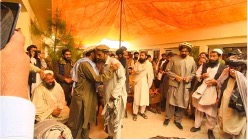
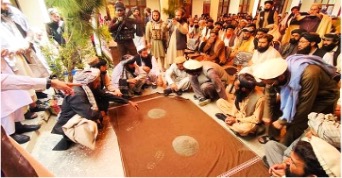
“For more stories, please click here.”

